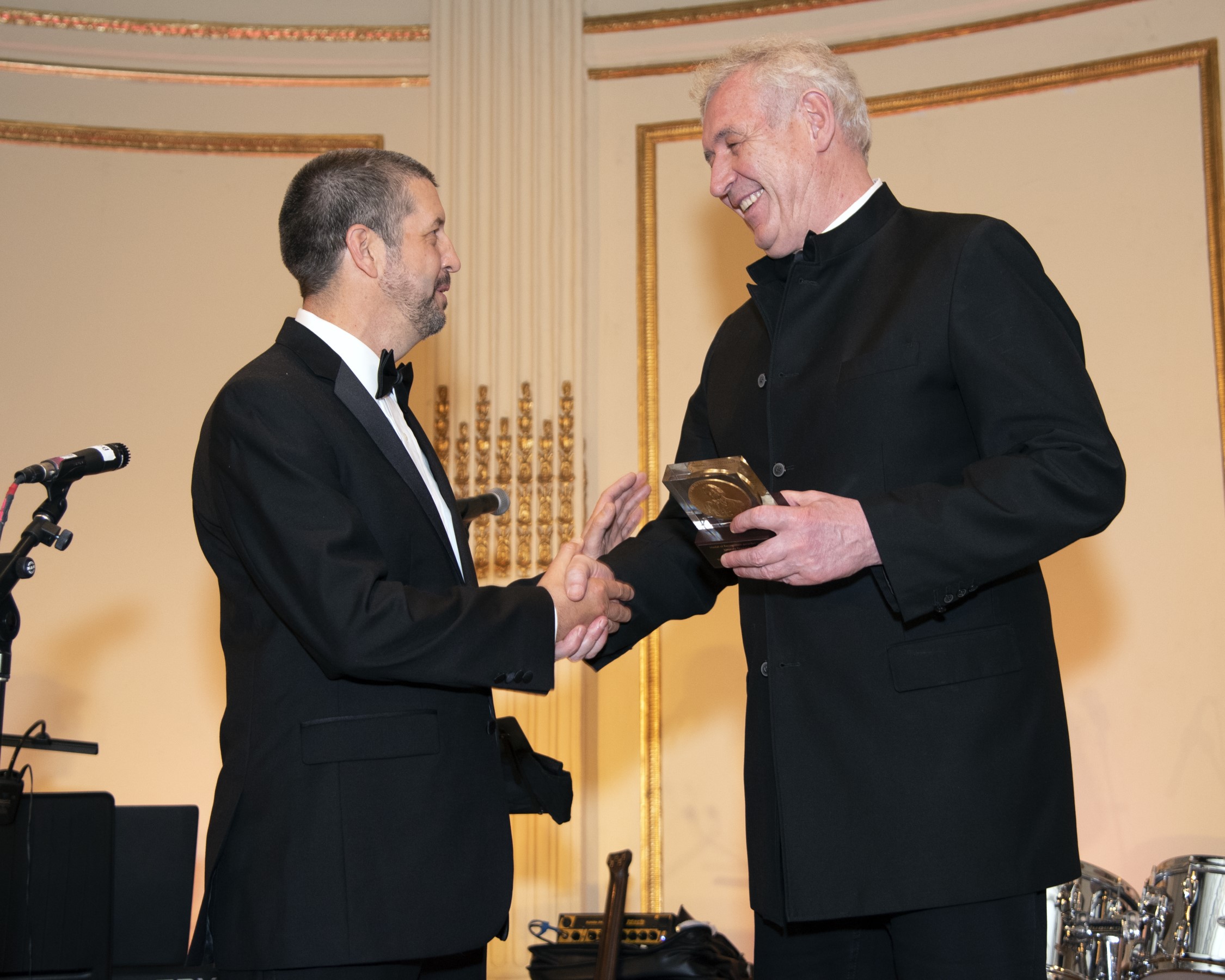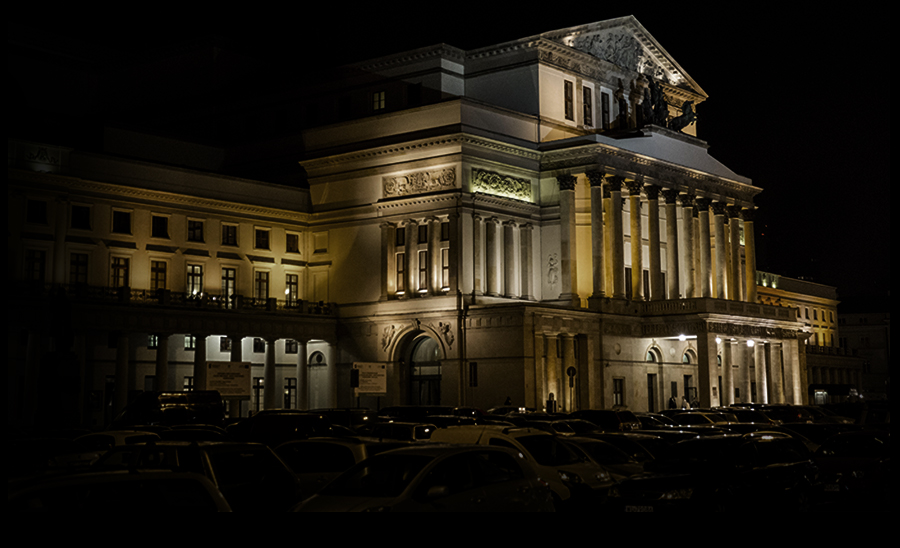 Inspired by the Polish national hero Tadeusz Kościuszko, Polish immigrant to the United States who went on the study at Harvard and teach economics at Drake University, Szczepan Mierzwa set up the Kosciuszko Foundation in 1925 to promote closer ties between Poland and the US through educational, scientific and cultural exchanges. Each year the Foundation it awards fellowships and grants to graduate students, scholars, scientists, professionals, and artists, and promotes Polish culture in America.
Inspired by the Polish national hero Tadeusz Kościuszko, Polish immigrant to the United States who went on the study at Harvard and teach economics at Drake University, Szczepan Mierzwa set up the Kosciuszko Foundation in 1925 to promote closer ties between Poland and the US through educational, scientific and cultural exchanges. Each year the Foundation it awards fellowships and grants to graduate students, scholars, scientists, professionals, and artists, and promotes Polish culture in America.
In 1927, Mierzwa persuaded Maria Skłodowska Curie, the Polish Nobel Prize-winning chemist and physicist, to allow him to name a scholarship after her, which helped raise the profile of the Foundation. Over the years, the Kosciuszko Foundation has added honorary trustees to its board, such as Zbigniew Brzezinski, Czeslaw Milosz, Andrzej Wajda and Krzysztof Penderecki.
The overriding objective of the Foundation is to raise funds to grant financial aid to deserving Polish students to study in America and American students desiring to study in Poland; to encourage and aid the exchange of professors, scholars, and lecturers between Poland and the United States; and to cultivate closer intellectual and cultural ties between the two countries.
Over the years, under the leadership of its successive presidents, Dr Eugeniusz Kusielewicz, an associate professor of History from St. John’s University, Alex Storożyński, a Pulitzer Prize-winning journalist, and Dr John S. Micgiel of Columbia University, the Kosciuszko Foundation has been working to change the world through the humanities and the arts, the sciences, technology, and business. Apart from fellowships and grants, it provides awards such as the Medal of Recognition. Designed by Tadeusz Sowiński, the Medal has been awarded to prominent figures of Polish culture since 1955. Past recipients include Leopold Stokowski, Artur Rubinstein, Stanisław Skrowaczewski, Ewa Podleś, Agnieszka Holland, Ryszard Kapuściński, Rafał Olbiński and Juliusz Machulski.
Medals of Recognition are presented during the Foundation's Annual Fundraising Dinner and Ball, and event that dates back to 1933. The first Ball took place at Pennsylvania Hotel in New York City, before moving to the luxurious Waldorf Astoria in 1936. The attendees were academically high-achieving young women aged 16–25 who were accompanied by their fathers, West Point and Kings Point cadets. Nowadays, the event still includes a presentation of debutantes to an assembly of diplomats, community leaders and recognised representatives of arts and sciences.
This year's Fundraising Dinner and Ball took place on Saturday, 22 April, at the Plaza in NYC. The Foundation celebrated the achievements of Polish musicians and recognised two leading figures who shaped the scene and image of Polish music in the world.
The Foundation’s Medal of Recognition was presented to Urszula Dudziak, a world-renowned Polish jazz vocalist who performed with some of the greatest jazz artists in almost all countries in Europe, Asia, and the Americas, who recorded nearly 50 albums of which Newborn Light was recognised by the prestigious American Down Beat magazine, and who was named the Singer of the Year by the Los Angeles Times.
The Foundation also honoured Waldemar Dąbrowski, General Manager of the Polish National Opera and former minister of culture, a visionary leader in the field of classical music whose pioneering initiatives led to the advancement of the Polish cultural scene and encouraged an appreciation for Poland’s rich national heritage worldwide.
Waldemar Dąbrowski is a British Council, Goethe Institute and U.S. Department of State fellow and completed the Executive Program for Leadership Development at Harvard University. Still as a student, he co-founded and then led Riviera-Remont, a popular student club in Warsaw. In 1982, together with Jerzy Grzegorzewski, he too over at the helm of Centrum Sztuki Studio in Warsaw. In 1990 he became Deputy Minister of Culture and Art and the President of the Board of the Polish Cinematography Committee. He held this position for four years, carrying out a thorough reform of the Polish film sector. In 1998 he initiated the Festival of Stars in Międzyzdroje, an annual summer event which became a showcase of various artistic disciplines. After becoming Poland's minister of culture in 2002, he founded the Polish Film Institute and set up the Chopin 2010 programme in preparation for the Chopin bicentenary falling in 2010. He also set up the Theatre Institute in Warsaw to promote Polish literature abroad. In 2008 Mr Dąbrowski was reappointed as General Manager of the Polish National Opera. Under his leadership, the opera company was nominated for an International Opera Award, its Artistic Director, Mariusz Treliński, won the International Opera Award for Best Director in 2017, while its production of Władysław Żeleński's Goplana was named Best Rediscovered Work. Waldemar Dąbrowski is the recipient of L’ordre de la Legion d’honneur, Commandeur des Arts et Lettres, Honorary Knight Commander of the Civil Division of the British Empire, and the recipient of the Officer Cross and Commander of the Order of Polonia Restituta. In 2019 her received the International Opera Award for Leadership in Opera.
Pictured: President and Executive Director of the Kościuszko Foundation Marek Skulimowski and Waldemar Dąbrowski






 ''
''